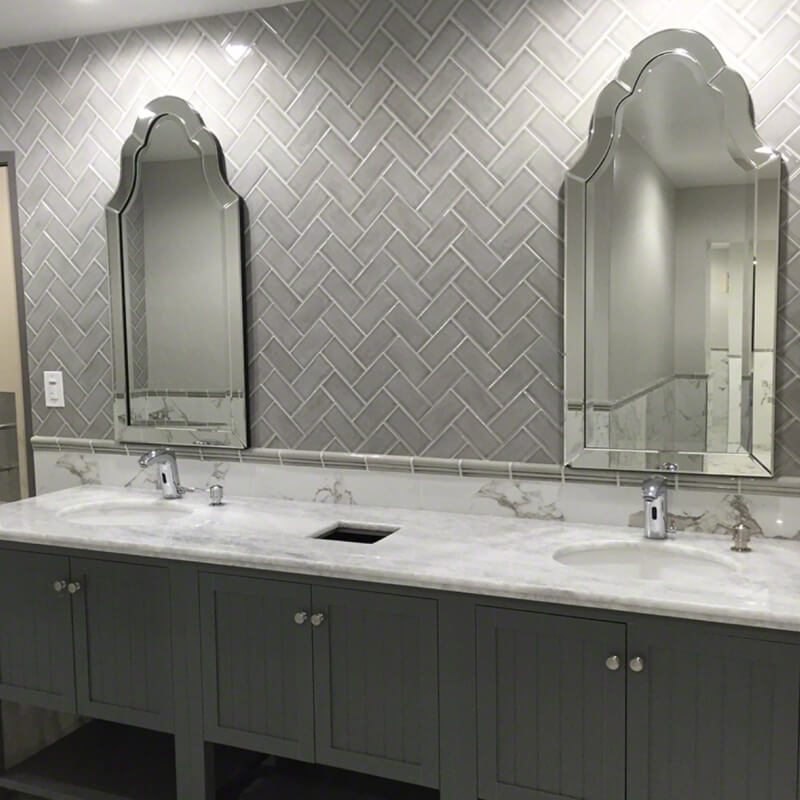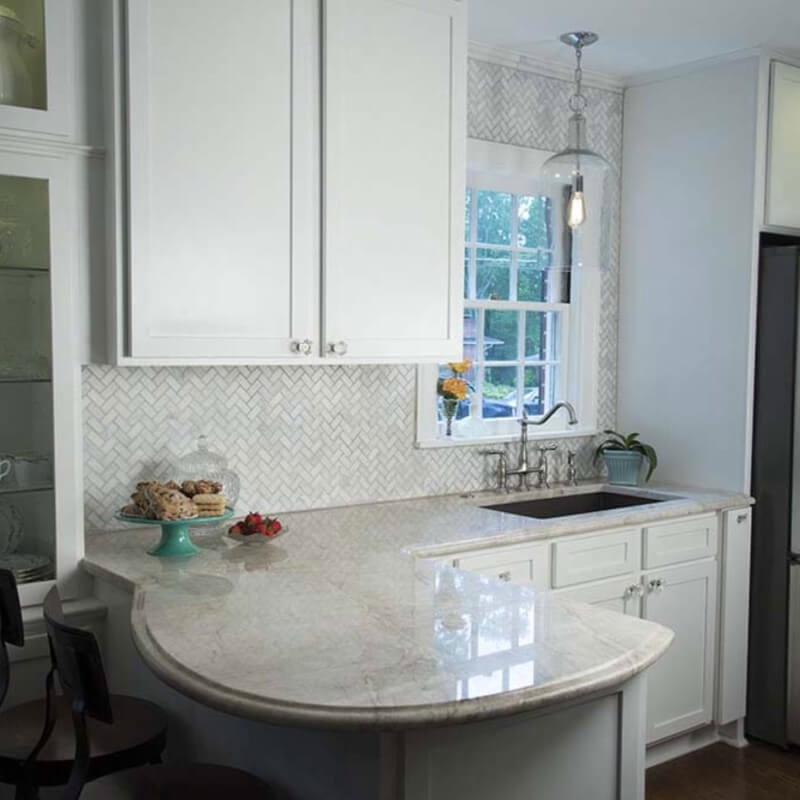Are Quartzite Countertops A Natural Or Manufactured Surface?
June 25, 2017.jpg)
Everyone’s familiar with granite countertops, that perennial favorite for high-end kitchen designs. But quartzite countertops are gaining in popularity! Because of this upward surge, it’s become a frequently trending topic of discussion on the Internet.
As the foremost authority on premium surfaces, we want to clarify one of the most common questions, asked both online and off: Are quartzite countertops natural or manufactured?
The confusion is understandable. Quartzite is sometimes referred to as “quartz,” even though the two products are quite different. Both materials contain the mineral quartz, but that’s where the similarity ends.
Quartz countertops are manufactured from a combination of quartz crystals, resins and pigments to create the color and pattern desired.
Quartzite, on the other hand, is a completely natural material — quarried or mined directly from the earth, like granite, marble, sandstone, travertine, and other natural stones.
 Featured: Crystal Ice Quartzite
Featured: Crystal Ice Quartzite
Your choice depends on your own preferences in terms of cost, maintenance, and appearance. Both have benefits and characteristics that make them superior surface materials for counters, backsplashes, wall accents and more.
Engineered in a factory, quartz countertops combine quartz with pigments and resins to create a totally nonporous, durable surface. It can be manufactured in a multitude of colors and patterns, some of which resemble natural materials such as marble or even concrete. Though it may seem like the perfect countertop material, it’s not the right choice for everyone.
It is not recommended for use outdoors, for one thing. It isn’t as heat-resistant as natural stone, and it lacks the natural variation and patterning found in natural materials. However, you can’t beat quartz countertops for ease of care, and the cost is less than natural stone.
Quartzite countertops, on the other hand, are the real deal. It’s a natural metamorphic rock, created over millennia from sandstone which was exposed to extreme heat and pressure. It is extracted from the earth, cut into slabs, then polished and sealed.
 Featured: Madreperola Quartzite
Featured: Madreperola Quartzite
Quartzite may resemble other natural stones in appearance, such as marble or granite. However, it’s tougher and more resistant to chipping and scratching than many other natural stones. Unlike engineered quartz countertops, quartzite countertops are heat-resistant, and a great choice around cooktops, grills, or other hot spots.
Some great quartzite countertop ideas include outdoor kitchen installations – like other natural materials, it’s able to withstand exposure to the elements. It does require regular sealing, but this is a simple, quick process.
With your own preferences in mind, as well as your lifestyle and location of installation, you’ll be able to decide which type of countertop you prefer – budget-friendly, versatile quartz, or natural, rugged quartzite.
Visit MSI’s product gallery to see the wide selection of both manufactured and natural options for your countertops.
LEARN MORE ABOUT QUARTZITE COUNTERTOPS
Finding The Right Edge For Your Quartzite Countertop
Why Home Chefs Are Choosing Quartzite Kitchen Countertops
 Audacia Quartzite
Audacia Quartzite